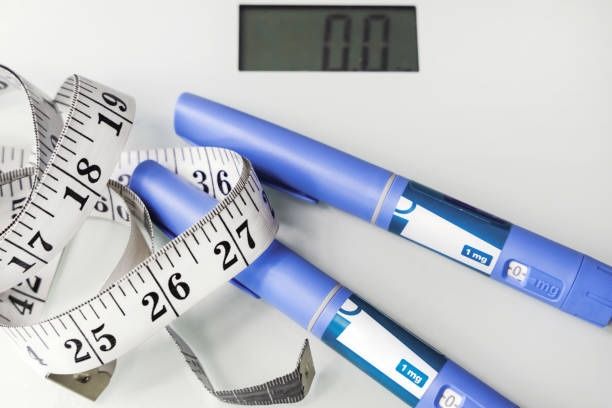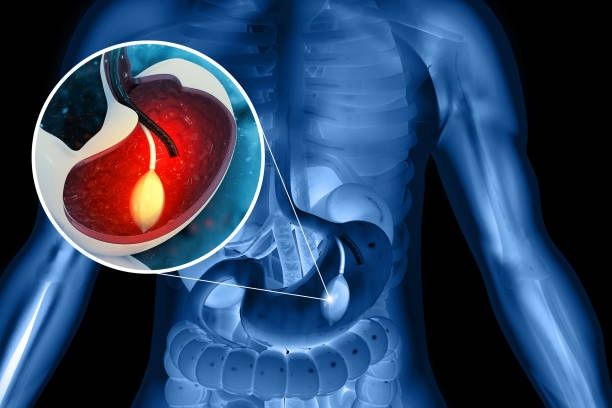How Much Weight Can You Really Lose On Wegovy?
Losing weight isn’t always about dieting, sometimes you need extra help. Explore Wegovy, how much weight you can lose with it, alternatives, and more.

Bariendo Team
Team @ Bariendo
For many people, losing weight isn’t as easy as following an exercise plan and cutting ultra-processed foods. This may help drop a few pounds at first, but then, a single slip in the plan puts them back at the beginning.
If this strikes a chord, you’re not the only one dealing with it. The good news is that there are relatively new medications that help reduce the burden of adjusting to a new diet and prepare your body to lose weight faster. One of the most widely discussed is Wegovy, an FDA-approved injectable prescription drug designed to support chronic weight management.
Wegovy’s manufacturer, Novo Nordisk, reports that people lose an average of 15% of their body weight over 68 weeks (1.3 years) when using the medication in combination with diet and exercise.* While some patients even report losing up to 20%, research shows that many people regain weight after discontinuing Wegovy.**
In this article, we’ll break down how much weight you can expect to lose week by week, how Wegovy works, its risks and side effects, and alternatives you may want to consider.
CTA: Want to lose weight with non-surgical interventions? Get in touch with our doctors and identify which is the best weight loss medication for you.
How Much Weight Can You Lose on Wegovy? (According to Real Patients)
Clinical studies and real-world reports give us a good picture of what to expect based on the dosing schedule. Here’s the average weight loss journey on Wegovy:
- Weeks 1–4: ~2% body weight
- Weeks 5–8: ~4%
- Weeks 9–12: ~6%
- Weeks 13–16: ~8%
- Week 17+: ~15–17% (after more than a year)
Let’s look at each stage more closely.
Week 1-2
When starting Wegovy, patients are typically prescribed 0.25 mg once a week for the first four weeks. At this stage, your body is adjusting to semaglutide (the active ingredient in Wegovy), so you may experience adverse events like nausea, fatigue, or stomachache. These usually improve as your system adapts.
Doctors heavily recommend pairing Wegovy with a calorie-controlled diet and regular physical activity to get the most benefit.
Patients often report losing about one to two pounds per week in the beginning. If the loss is greater in the first week, it’s usually due to water weight, not fat. This happens because your body uses up glycogen, a stored glucose, that holds onto water. As glycogen depletes, the water is released, leading to quick initial weight loss.
Week 3-4
Even though you remain on the 0.25 mg starting dose, some patients begin to notice appetite changes. They report feeling full sooner and staying satisfied longer.
If you wonder how much weight you can lose on Wegovy in one month, the STEP-1 clinical trial published in the New England Journal of Medicine, shares that average weight loss is around 2% of total body weight by week 4, though results vary.
Patients sharing their stories online on Reddit’s r/WegovyWeightLoss highlight very different experiences. Some lose 10–14 lbs in the first month, while others report needing a higher dosage to drop beyond 5 lbs. This, of course, depends on the person’s initial weight.
Week 5-8
At this point, the dose is usually raised to 0.5 mg weekly. Side effects may return or intensify temporarily but usually stabilize as your body adjusts.
By week 8, the average weight loss is about 4% of total body weight. Many people start to notice physical differences, like looser clothing or reduced waist size.
That said, not everyone loses weight with semaglutide. One user reported: “I started Wegovy on 0.25 mg 5 weeks ago. This past week, I bumped up to 0.5 mg. I’ve not had any side effects (not complaining) but I also haven’t had any weight loss! In fact, I’ve gained 2 lbs?!”
This shows how variable the results can be depending on individual metabolism, diet, and lifestyle.
Week 9-12
Most patients increase to 1 mg weekly at this point, and they experience strong appetite suppression. If you’re wondering how much weight you can lose on Wegovy in three months, clinical data suggests around 6% body weight reduction by week 12. Many patients report feeling satisfied with their progress once they reach this or a slightly higher dosage (1.7 mg).
Another patient shared their experience with this semaglutide injection, reinforcing the importance of pairing Wegovy with a healthy diet: “Somewhere around 1.7 mg or 1 mg, I felt something, but even at 2.4 mg, it isn’t enough to make me lose weight. It makes me feel full sooner.”
Week 13 and onwards
From week 13 onward, patients may stay at 1.7 mg weekly or increase to the maximum maintenance dose of 2.4 mg weekly by week 17.
At the maximum dose, clinical trials show an average weight loss of 15% over 68 weeks (a little over a year).
Sustaining lifestyle changes (healthy diet, exercise, stress management) becomes especially important here. Wegovy isn’t a magical position, so to avoid getting shots for many years or regain weight as soon as you stop, doctors recommend patients take advantage of this appetite suppressant to make real habit changes.
How Does Wegovy Work (Semaglutide Injections)
Wegovy contains semaglutide, a GLP-1 receptor agonist. In simple terms, GLP-1 (glucagon-like peptide-1) is a natural hormone released after eating that signals the brain to feel full. It also slows down stomach emptying and helps regulate blood sugar.
By mimicking this hormone, Wegovy:
- Reduces appetite
- Slows digestion, so you feel full longer
- Supports blood sugar control, especially in people with prediabetes or type 2 diabetes
In simplified terms, Wegovy works by reducing people’s appetite. This helps people lose weight by eating smaller portions of food, but if people don’t change their eating habits, they’re likely to regain weight after stopping.
Wegovy patients will need to inject themselves at the same time every week, even during the maintenance stage.
Is Wegovy Safe? (According to Experts)
Most clinical evidence supports Wegovy as a safe and effective long-term treatment for weight management. Still, risks exist.
Potential long-term issues include:
- Pancreatitis (inflammation of the pancreas)
- Gallbladder issues
- Kidney problems
According to Wegovy’s website, people on the treatment may potentially develop thyroid tumors that could result in cancer. Therefore, patients need to pay attention to their necks and alert their doctor in case of lumps or swelling in this area. In trials, these complications only appeared in rodents, not people. However, patients should be monitored by a doctor at all times to stay alert.
During the treatment, Wegovy patients can also experience side effects.
Wegovy Side Effects
The most common side effects include:
- Nausea
- Vomiting
- Diarrhea
- Constipation
- Abdominal pain
- Headaches
- Fatigue
This often occurs during the first week and whenever patients get a dose increase. These are usually expected and will go away by making changes to your eating habits, such as eating smaller food portions. However, you should always tell your doctor about your symptoms.
What Else Can Impact Your Wegovy Results
While Wegovy can be effective, results depend on multiple factors, such as:
- Diet plan. A high-fiber, nutrient-dense, lower-carbohydrate and processed foods, balanced diet supports appetite control and fat loss.
- Exercise. Aim for 150 minutes per week of moderate activity (e.g., brisk walking, cycling) plus strength training twice a week.
- Health conditions. Certain endocrine conditions or thyroid cancers make Wegovy injections unsafe.
- Age. Younger patients may respond differently than older adults. Clinical trials suggest effectiveness across age groups, but metabolism slows with age.
- Time. Results take months, and users need to be patient. Some patients don’t see significant progress until they reach higher doses.
- Mental health. Stress, anxiety, or depression can affect appetite, food choices, and consistency with treatment.
Alternatives to Wegovy for Losing Weight
If Wegovy’s side effects, cost, or risk of weight regain are concerning to you, here are some weight loss alternatives to consider:
Ozempic
Ozempic is an injection medicine for those with type 2 diabetes. However, it was recently popularized as a weight loss injection.
Like Wegovy, it also contains semaglutide, but at lower doses. It’s approved by the FDA for type 2 diabetes, not weight loss, though many people use it off-label.
- Pros:
- Lower cost
- Widely available
- Cons:
- Not specifically approved for weight management, which leads to some people experiencing secondary health issues
- Weight loss results may be less dramatic
- People don’t know how to stop using Ozempic without regaining weight
Interested in knowing more about Ozempic? Check out this guide on how much weight you can lose on Ozempic.
Gastric balloon
The gastric balloon is a non-surgical procedure where a balloon is placed in the stomach to reduce space and limit food intake.
Let’s explore the pros and cons of the gastric balloon:
- Pros:
- Temporary (6-12 months)
- Helps jump-start weight loss
- You feel sooner and longer, which helps form more realistic healthier habits
- Lower cost and less time-consuming than continuous Wegovy usage
- Cons:
- Requires endoscopy, but only takes 15 minutes
- Average weight loss is lower in percentage than Wegovy but people tend to have longer-lasting weight loss after the balloon removal
Some gastric balloon patients share their stories on how this procedure changed their lives. “I felt trapped in a body that didn’t reflect who I truly was. I decided to do the gastric balloon procedure, which has been the best decision ever! I’ve lost 29 lbs, feel great, and little by little am reaching my goal weight,” says Arisnel, Bariendo Gastric Balloon patient.
ESG (Endoscopic sleeve gastroplasty)
The ESG stomach tightening is a minimally invasive 60-minute procedure where the stomach is sutured from the inside, reducing its size by 60-75% and slowing digestion.
This, and the gastric balloon, are perfect for anyone with a BMI of over 30, or a bit lower with a preexisting condition, such as high cholesterol, sleep apnea, high blood pressure, diabetes, or fatty liver disease.
Hear Dr. Christopher Thompson, the inventor of this procedure and founder of Bariendo, explain how ESG works: https://www.youtube.com/watch?v=IxNwUctXO_w
- Pros:
- No external incisions
- Long-lasting weight loss (average 15–20%)
- Quick recovery time. Results tend to last for 10+ years
- Cons:
- Requires anesthesia, but people usually recover in one to three days
- More expensive upfront, but not in the long term
In some cases, ESG patients can experience amazing results. This was Nicole’s case, a Bariendo ESG patient who lost 44% of her body weight. “For the first time in my life, I’m able to experience the feeling of fullness and satisfaction. What they did to my stomach is truly magical! Bariendo saved my life,” she says.
Bariendo was built by the ESG founder, and all doctors are vetted by him. All of our locations follow a patient-first approach, are committed to excellence and innovation, and focus on offering transparent education about procedures. Looking for a non-surgical, less time-consuming solution that offers more sustainable results than Wegovy? Explore ESG and the gastric balloon with one of our doctors at Bariendo. Book a free consultation.
Final Thoughts: Is Wegovy the Best Solution to Lose Weight Fast?
Wegovy can deliver impressive weight loss with up to 15–20% of body weight in just over a year. It works by reducing appetite and helping people eat less, often without feeling deprived.
However, it’s not a one-and-done solution. Results vary, side effects are common, and weight regain is likely if treatment stops. Patients must commit to lifestyle changes for long-term success.
For those seeking alternatives that don’t affect your hormones and offer longer-lasting results, options like the gastric balloon or ESG are the way to go. Clinics like Bariendo provide effective, sustainable, and non-surgical paths to weight loss.
In the end, the best choice depends on your medical history, lifestyle, and goals, something best decided in consultation with a qualified weight management specialist. Book a free consultation with Bariendo doctors.
Sources
* Managing Weight With Wegovy®. (ND). Wegovy. Found on: https://www.wegovy.com/about-wegovy/managing-weight-with-wegovy.html
** What happens when you stop using Wegovy? (2025). Medical News Today. Found on: https://www.medicalnewstoday.com/articles/drugs-what-happens-when-you-stop-taking-wegovy

